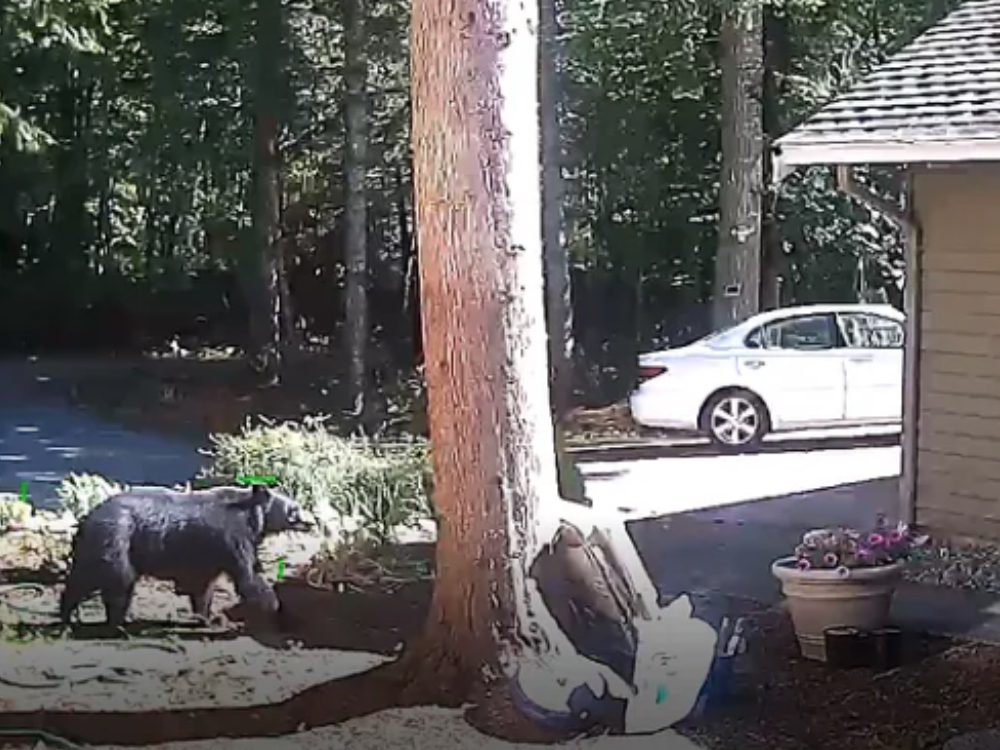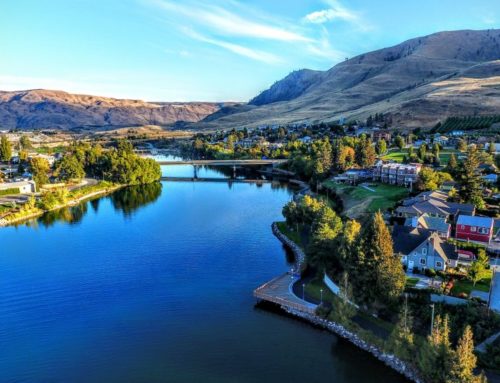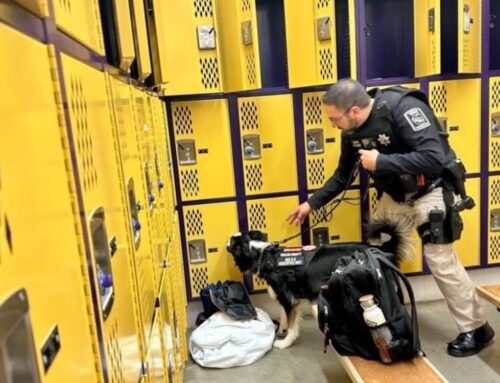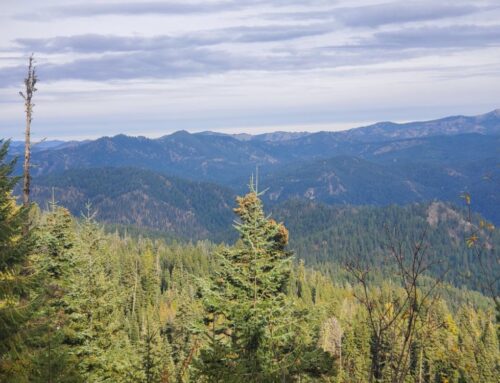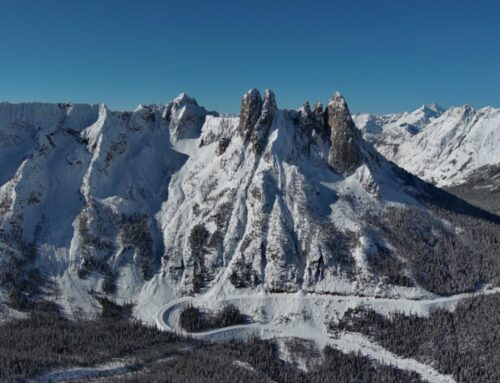Keep bears wild by cleaning up backyard attractants — tips from WA Fish & Wildlife
information released by Washington Fish & Wildlife, Photo submitted by Ken C.
If you live in Washington, chances are you live in bear country. Black bears (Ursus americanus) may be present nearly anywhere in our state, including suburban areas and greenbelts near towns and neighborhoods. Washingtonians have a responsibility to take simple precautions to help avoid conflicts that can put both people and wildlife at risk.
Each spring, black bears emerge from winter dens and immediately begin feeding on grass and flowers. Once their digestive system has “woken up” from their winter slumber, they begin their search for more high-calorie meals. It isn’t uncommon to see a bear in neighborhoods and backyards, where they are drawn to attractants like garbage cans, pet food, or birdseed.
Some people are tempted to feed bears they find in their backyard or allow them to forage on their lawn or landscaping, thinking they are helping the bears.
The truth is, feeding wildlife can cause more harm than good.
Never attempt to provide food for black bears or allow them to be comfortable around people — this can lead to problems for both bears and people down the line. (Not to mention, it’s against the law.)
Bears are naturally wary of humans but can overcome their fear when people reward them (intentionally or unintentionally!) with high-calorie food sources.
Did you know they can smell food from over a mile away? With both temperatures and bear activity increasing, we’re asking for your help to secure unnatural food sources and reduce potential bear encounters.
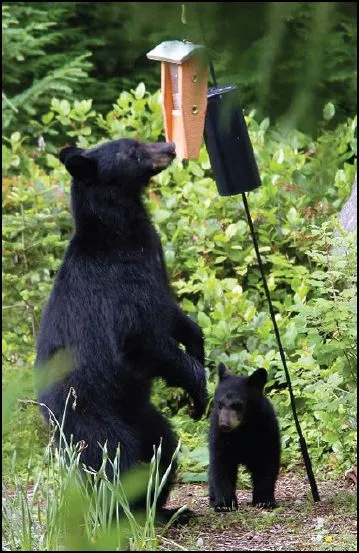
WDFW Photo
Please take a moment to survey the outside of your home and remove common black bear attractants. Follow these tips to prevent attracting bears to your home and to avoid negative bear interactions this spring:
- Never intentionally feed bears or other backyard wildlife.
- Always keep garbage cans in a garage or a sturdy building until collection day.
- Take down seed, suet, and hummingbird feeders until fall.
- Clean up fallen fruit or other possible attractants around your home.
- Remove pet food from wildlife-accessible areas and feed your pets inside.
- Thoroughly clean barbecue grills after each use and store them in a secure building.
- Cage and electric fence your domestic fowl and livestock pens.
- Avoid storing food in your car.
- If you see a bear on your property, please clap your hands loudly and shoo it away.
You can also help prevent bear encounters by taking some simple steps when recreating outdoors. When camping, remember to always:
- Promptly clean up all spilled food.
- Wash up after eating, including you and your children’s hands, face, and clothing.
- Wash all cooking utensils.
- “Pack it in, pack it out:” do not leave food or other waste behind at the end of your camping trip. Do not dispose of cooking oils or fats near your campsite.
- Keep all attractants at least 100 yards away from camping areas. If that isn’t possible, seal uneaten food and scented personal items (like lotion or toothpaste) in airtight containers and store in bear-resistant canisters or food lockers. Encourage your neighboring campers to do the same. You can find bear-resistant canisters at local sports stores.
WDFW responds to a variety of situations involving black bears every year, and most are due to human-provided attractants leading to preventable encounters. We often speak with residents or leave a flyer reminding them to secure or remove garbage and other attractants. Remember that feeding or negligently attracting black bears or other large wild carnivores is illegal in Washington under RCW 77.15.790 and other state laws. Secure or remove bear attractants or face fines of up to $1,025.
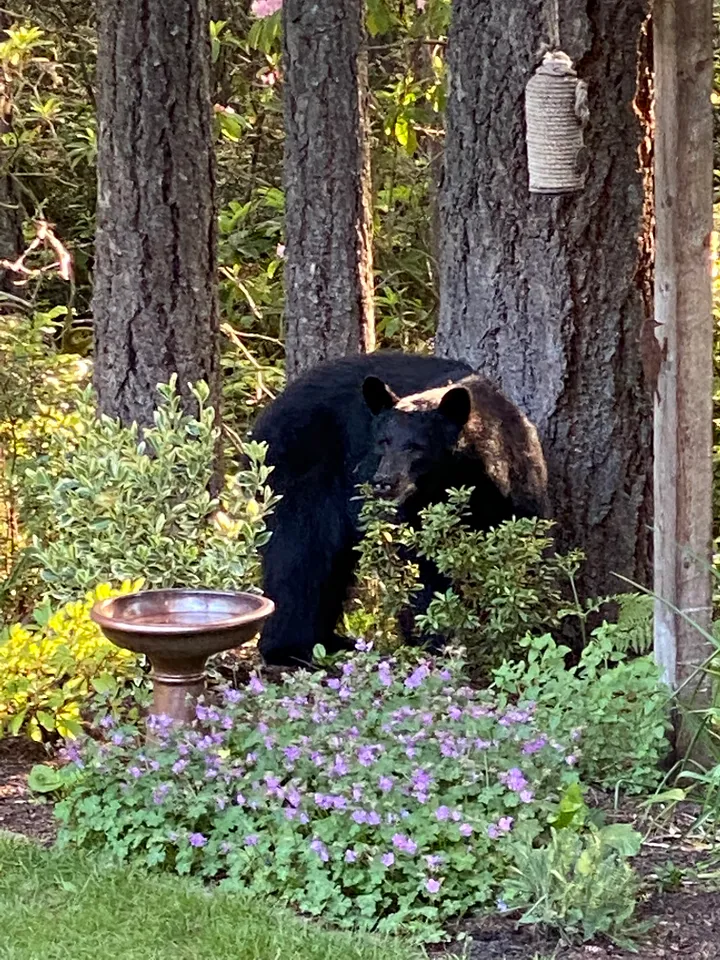
Daryl Sylvester Photo, courtesy of WDFW
Washingtonians can protect themselves, protect their property, and protect wildlife by preventing bears from becoming habituated to non-natural food sources. Please visit the WDFW website to learn how you can do your part to keep bears wild.


